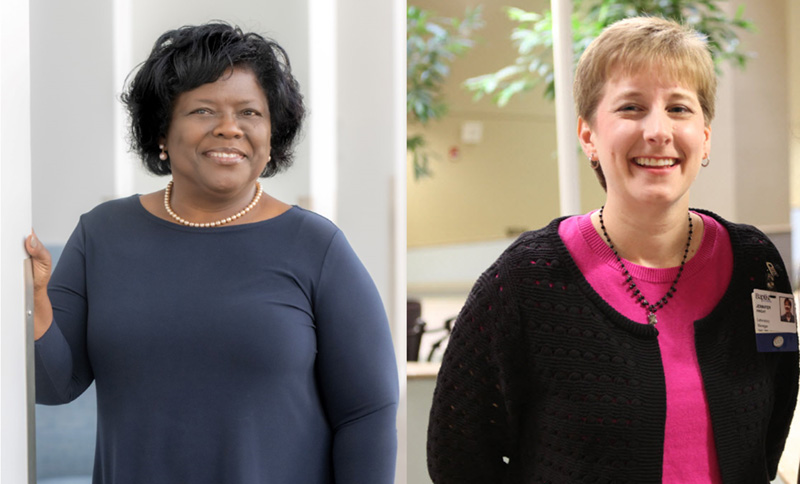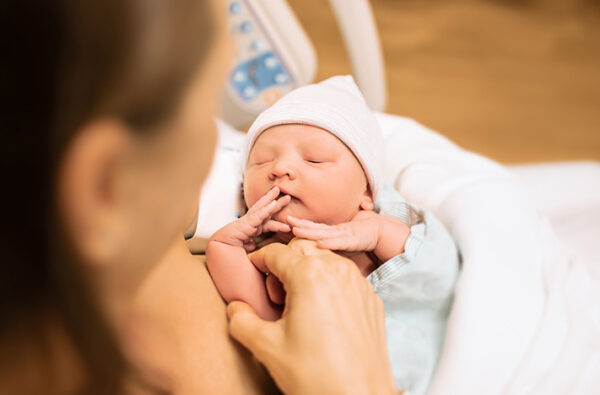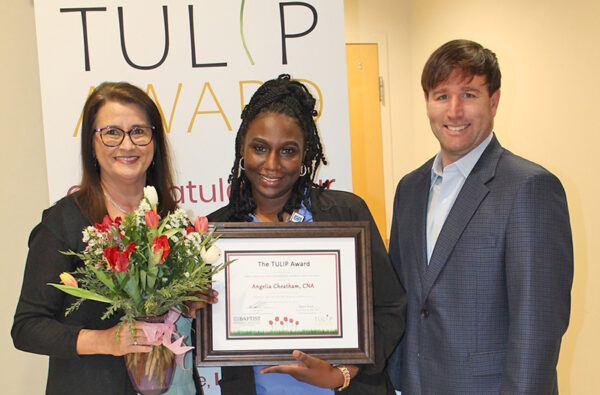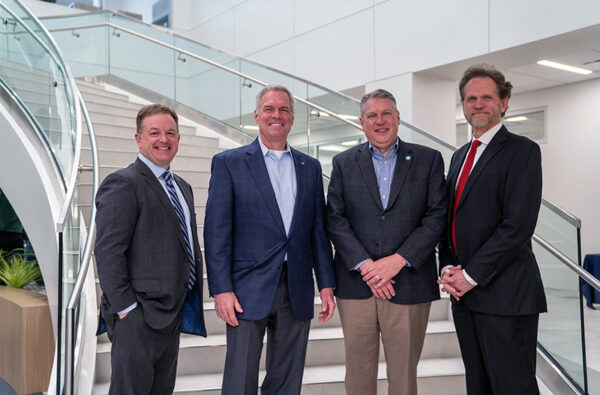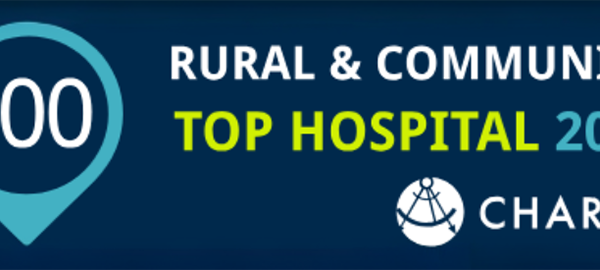Medical laboratory scientists work behind the scenes, helping with nearly every diagnosis made by providers. When those test results appear on the screen, it can sometimes be easy to forget all the effort that was put into them by medical laboratory scientists, who are an integral part of the health care team.
Baptist Memorial Health Care appreciates its medical laboratory scientists and technicians and has made a concerted effort to involve laboratory representation on a number of committees covering areas like infection control, cardiovascular and oncology.
“Our input is sought out. Not every health system out there can say that laboratory gets that recognition and visibility and input at the table,” said James Bolden, system director of pathology services.
With medical laboratory scientists, there is one area of concern throughout the U.S., and it’s that we need more of them! Nearly double the number of individuals retire from the profession each year compared to the number entering it. Medical laboratory science is a field that some students may neglect to consider, yet it’s an exciting and dynamic career choice.
To learn more, we talked with Darius Wilson, E.D., professor and chair for the Medical Laboratory Science program at Baptist Health Sciences University, and Jennifer Knight, M.H.S., M.L.S. (ASCP), program director for the Mississippi Baptist Medical Center School of Medical Laboratory Science program.
What are the similarities and differences between the medical laboratory science (MLS) programs at BHSU and MBMC?
Darius Wilson:
We’re both accredited by the National Accrediting Agency for Clinical Laboratory Sciences (NAACLS). Students of both programs are eligible to sit for national certification.
The BHSU program began in 2012, and we accept up to 15 students a year with a start date in September. Students complete courses required to obtain a Bachelor of Health Science degree in medical laboratory science. When students are ready for their clinical rotations, they are assigned at clinical sites at Baptist, Methodist Le Bonheur Healthcare, St. Jude Children’s Research Hospital and American Esoteric Laboratories (AEL).
Students completing the program at MBMC earn a certificate and complete their training on campus in Jackson, Mississippi.
Jennifer Knight:
Our program began in 1946. We accept about six students a year, and we’re looking at allowing students to have a start date in January in addition to our usual start date of August.
Since we’re hospital based, we don’t grant degrees. Our students either come to us having completed a bachelor’s degree already, or they’re part of a 3 + 1 degree program we’ve joined with.
Students in a 3 + 1 degree program would attend college for three years and then come to our program for a year. They would still finish in four years, receiving a certificate of completion from us and a bachelor’s degree from the college. We also accept 4 + 1 students who have already completed their degrees. The placement rate after receiving the certificate is 100%.
What is unique about the hospital-based MLS program at MBMC?
Jennifer Knight:
Our students are immersed in the lab for the entire 11 months they are on campus. By the end of the year, students have been learning in the environment in which they’ll be working after graduation. They learn not only how to perform testing, but how to deal with the busy environment that is the laboratory, with instruments that beep, phones ringing, people talking, etc. They know how to concentrate on the task at hand but they’re also aware of what’s going on around them.
Students in university-based programs have a similar experience during their clinical rotations, but their rotation times are usually shorter – around five months instead of 11 months for our hospital-based program. Some students need the slower pace of pre-rotation coursework that a university-based program provides before they go into clinical rotations. Others prefer the more intense year of a hospital-based program.
What are the advantages of the MLS program at BHSU over other schools?
Darius Wilson:
We have small class sizes, and students don’t have to apply for the clinical rotations. They are embedded in the degree program.
Our retention rate is excellent, so students are getting what they need from the program. We provide a lot of resources to help our students be successful. The placement rate after graduation is 100%.
If you have a love of science and a willingness to work hard, you can complete the program and get a job anywhere in the U.S.
What can you do with an MLS degree?
Darius Wilson:
There are so many opportunities just within the field that boredom is not a problem. With an MLS degree, you can work in microbiology, chemistry, hematology, coagulation, urinalysis, immunology, transfusion medicine, toxicology, blood bank and molecular diagnostics.
There are opportunities to change departments and continue to learn and grow. It’s an ever-changing field. When COVID-19 hit, that was a learning curve. We had to jump right in and get it done.
Jennifer Knight:
There are also many options for those not interested in working in a laboratory long-term. Students may use an MLS program as a stepping stone to medical school, or decide to go into sales and marketing for the instrumentation used in the laboratory. There are also opportunities to go into research or become a lab manager or an educator. Some people who start out in the field may move into hospital administration or work in Epic.
Medical laboratory science is a great field to be in if you like to solve problems and want to help patients but don’t want a lot of patient contact. We contribute to caregiver decision-making and treatment options. It’s never dull!
Learn more about the MLS programs.
Click here to find out more about the MLS program at BHSU, or click here to learn more about the program at MBMC.

